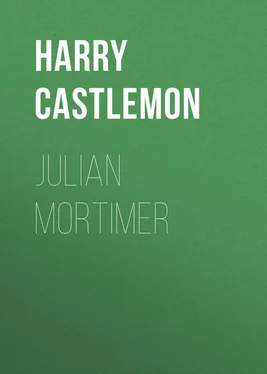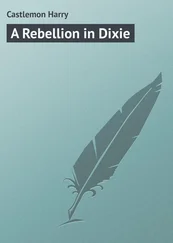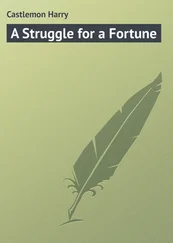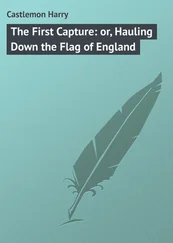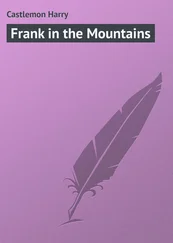Harry Castlemon - Julian Mortimer
Здесь есть возможность читать онлайн «Harry Castlemon - Julian Mortimer» — ознакомительный отрывок электронной книги совершенно бесплатно, а после прочтения отрывка купить полную версию. В некоторых случаях можно слушать аудио, скачать через торрент в формате fb2 и присутствует краткое содержание. Жанр: foreign_prose, foreign_language, на английском языке. Описание произведения, (предисловие) а так же отзывы посетителей доступны на портале библиотеки ЛибКат.
- Название:Julian Mortimer
- Автор:
- Жанр:
- Год:неизвестен
- ISBN:нет данных
- Рейтинг книги:4 / 5. Голосов: 1
-
Избранное:Добавить в избранное
- Отзывы:
-
Ваша оценка:
- 80
- 1
- 2
- 3
- 4
- 5
Julian Mortimer: краткое содержание, описание и аннотация
Предлагаем к чтению аннотацию, описание, краткое содержание или предисловие (зависит от того, что написал сам автор книги «Julian Mortimer»). Если вы не нашли необходимую информацию о книге — напишите в комментариях, мы постараемся отыскать её.
Julian Mortimer — читать онлайн ознакомительный отрывок
Ниже представлен текст книги, разбитый по страницам. Система сохранения места последней прочитанной страницы, позволяет с удобством читать онлайн бесплатно книгу «Julian Mortimer», без необходимости каждый раз заново искать на чём Вы остановились. Поставьте закладку, и сможете в любой момент перейти на страницу, на которой закончили чтение.
Интервал:
Закладка:
Harry Castlemon
Julian Mortimer / A Brave Boy's Struggle for Home and Fortune
CHAPTER I
THE WAGON TRAIN
THE SUN was just sinking out of sight behind the western mountains, and the shadows of twilight were beginning to creep through the valley, when two horsemen, who had been picking their way along the rocky and almost impassible road that ran through Bridger’s Pass, drew rein on the summit of an elevation and looked about them.
One of them was a trapper – he never would have been taken for anything else – a man about forty years of age, and a giant in strength and stature. The very small portion of his face that could be seen over his thick, bushy whiskers was as brown as an Indian’s; and from under the tattered fur cap that was slouched over his forehead, peeped forth a pair of eyes as sharp as those of an eagle. He was dressed in a complete suit of buckskin, rode a large cream-colored mustang, and carried a heavy rifle across the horn of his saddle. Around his waist he wore a leather belt, supporting a knife and tomahawk, and under his left arm, suspended by thongs of buckskin, which crossed his breast, hung a bullet-pouch and powder-horn. This man was Silas Roper – one of the best guides that ever led a wagon train across the prairie.
His companion was a youth about sixteen years of age, Julian Mortimer by name, and the hero of our story. He presented a great contrast to the burly trapper. He was slender and graceful, with a fair, almost girlish face, and a mild blue eye, which gazed in wonder at the wild scene spread out before it. It was plain that he had not been long on the prairie, and a stranger would have declared that he was out of his element; but those who were best acquainted with him would have told a different story. He took to the mountains and woods as naturally as though he had been born there, and Silas Roper predicted that he would make his mark as a frontiersman before many years more had passed over his head. There was plenty of strength in his slight figure, and one might have looked the world over without finding a more determined and courageous spirit. He was an excellent shot with the rifle, and managed the fiery little charger on which he was mounted with an ease and grace that showed him to be an accomplished horseman.
The boy’s dress was an odd mixture of the simple style of the prairies and the newest and most elaborate fashions of the Mexicans. He wore a sombrero, a jacket of dark-blue cloth, profusely ornamented with gold lace, buckskin trowsers, brown cloth leggings with green fringe, and light shoes, the heels of which were armed with huge Mexican spurs. His weapons consisted of a rifle, slung over his shoulder by a broad strap, a hunting knife and a brace of revolvers, which he carried in his belt, and a lasso, which was coiled upon the horn of his saddle. From his left shoulder hung a small deerskin haversack, to which was attached an ornamented powder-horn. The haversack contained bullets for his rifle, cartridges for his revolvers, and flint, steel and tinder for lighting a fire. Behind his saddle, neatly rolled up and held in its place by two straps, was a poncho which did duty both as overcoat and bed. He was mounted on a coal-black horse, which was very fleet, and so ill-tempered that no one besides his master cared to approach him.
The trapper and his young companion belonged to an emigrant train which, a few weeks previous to the beginning of our story, had left St. Joseph for Sacramento, and they had ridden in advance of the wagons to select a camping ground for the night. This was a matter of no ordinary importance at that particular time, for during the last two days a band of Indians had been hovering upon the flanks of the train, and the guide knew that they were awaiting a favorable opportunity to swoop down upon it. Hitherto Silas had had an eye only to the comfort of the emigrants, and in picking out his camping grounds had selected places that were convenient to wood and water, and which afforded ample pasturage for the stock belonging to the train; but now he was called upon to provide for the safety of the people under his charge.
The road, at the point where the horsemen had halted, wound around the base of a rocky cliff, which arose for a hundred feet without a single break or crevice, and was barely wide enough to admit the passage of a single wagon. On the side opposite the cliff was a deep gorge, which seemed to extend down into the very bowels of the earth. It was here that the guide had decided to camp for the night. He carefully examined the ground, and a smile of satisfaction lighted up his face.
“This is the place we’ve been looking fur,” said he, dismounting from his horse and tying the animal to a neighboring tree. “Now I will go out an’ look around a little bit, an’ you can stay here till the wagons come up. You won’t be afeared if I leave you alone, will you?”
“Afraid?” repeated Julian. “Of course not. There’s nothing to be afraid of.”
“You may think differently afore you see the sun rise again,” replied the guide. “Now, when the train comes up tell the fellers to take half the wagons an’ block up the road, here at the end of the cliff, an’ to put the others at the lower end. Then we’ll be protected on all sides. The Injuns can’t come down the cliff to get at us, ’cause it’s too steep; an’ they can’t cross the gully nuther. They’ll have to come along the road; an’ when they try that we’ll get behind the wagons an’ fight ’em the best we know how. It’s risky business, too,” added Silas, pulling off his cap and digging his fingers into his head, “‘cause if they are too many fur us we won’t have no chance on airth to run. We’ll have to stay right here an’ die, the hul kit an’ bilin’ of us.”
Julian, who had never seen an Indian in war-paint or heard the whistle of a hostile bullet, was amazed at the trapper’s coolness and indifference. The bare thought of a fight with the savages was enough to cause him the most intense alarm, and yet here was Silas, who had more than once been a prisoner in the hands of the Indians, and who knew much better than Julian could imagine it, what the fate of the emigrants would be if their enemies proved too strong for them, apparently as much at his ease as though there had not been a hostile warrior within a thousand miles. The boy wondered at his courage and wished his friend could impart some of it to him, little dreaming how soon he would have need of it.
“Do you really think there is danger of an attack?” asked Julian, as soon as he could speak.
The trapper, who was in the act of untying a haunch of venison that was fastened behind his saddle, turned and looked curiously at his companion.
“Youngster,” said he, “if you should diskiver a cloud as black as midnight comin’ up over these mountains, an’ should see the lightnin’ a playin’ around the edges, an’ hear the thunder a grumblin’, what would you say?”
“That we were going to have a storm,” replied Julian.
“In course you would. An’ when I know that thar are Injins all around us, an’ that they are takin’ mighty good care to keep themselves out of sight, I tell myself that they’ll bar watchin’. When I see their trail, an’ find out that thar are nigh onto three hundred braves in the party, an’ that they haint got no women or plunder with ’em, I know that they are on the war-path. An’ when they foller us fur two hul days, an’ their spies watch us every night while we are makin’ our camp – like that varlet over thar is watchin’ us now – I know that they are arter us an’ nobody else. The signs are jest as plain to me as the signs of a thunder storm are to you.”
“Is there some one watching us now?” asked Julian, in great excitement.
Читать дальшеИнтервал:
Закладка:
Похожие книги на «Julian Mortimer»
Представляем Вашему вниманию похожие книги на «Julian Mortimer» списком для выбора. Мы отобрали схожую по названию и смыслу литературу в надежде предоставить читателям больше вариантов отыскать новые, интересные, ещё непрочитанные произведения.
Обсуждение, отзывы о книге «Julian Mortimer» и просто собственные мнения читателей. Оставьте ваши комментарии, напишите, что Вы думаете о произведении, его смысле или главных героях. Укажите что конкретно понравилось, а что нет, и почему Вы так считаете.
